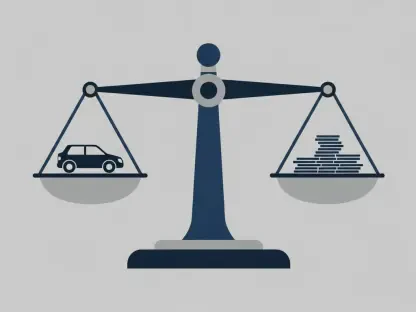Imagine a homeowner in the UK, year after year, letting their home insurance policy roll over without a second thought, unaware that a simple comparison could save them hundreds or secure better protection. This scenario is far too common, with a striking 25% of UK homeowners opting for auto-renewal without exploring alternatives, according to recent research by Go.Compare. Such inertia poses a significant challenge in the insurance market, where better deals and tailored coverage often lie just beyond the default option. This guide delves into the critical issue of auto-renewal, exploring homeowner behavior, market trends, and the pivotal role brokers can play in driving informed decision-making.
The importance of addressing this trend cannot be overstated. Auto-renewal may seem convenient, but it risks locking clients into suboptimal policies, potentially at higher costs or with inadequate coverage. By fostering a culture of active policy review, brokers have an opportunity to enhance client satisfaction and trust, ensuring that insurance solutions truly meet individual needs. This guide outlines best practices for brokers to combat complacency, offering actionable strategies to encourage engagement and empower homeowners to make smarter choices.
Why Addressing Auto-Renewal Matters
Auto-renewal often stems from inertia, leading homeowners to miss out on substantial cost savings or more comprehensive coverage. When policies renew without scrutiny, clients may remain tied to outdated terms that no longer reflect their property’s value or personal circumstances. This passive approach can result in overpaying for coverage or lacking essential protections, especially when life changes like renovations or relocations occur.
In contrast, active policy review opens doors to tangible benefits. Recent data from Pearson Ham Group’s General Insurance Price Index indicates a 3.3% decrease in average top-five quoted premiums for combined buildings and contents coverage in the first quarter of this year. While modest, this reduction highlights the potential for savings through comparison shopping, alongside the chance to secure policies with enhanced features tailored to specific needs.
Brokers stand to gain significantly by intervening in this space. A 2024 client service survey revealed that 83% of insurance buyers value consistent communication from their brokers, underscoring the demand for guidance during renewals. By stepping in to facilitate informed decisions, brokers can build stronger relationships, boost client loyalty, and position themselves as trusted advisors in a competitive market.
Strategies for Brokers to Tackle Auto-Renewal
To counter the auto-renewal trend, brokers must adopt proactive measures that encourage clients to reassess their policies regularly. This involves shifting the focus from mere transactions to meaningful engagement, ensuring homeowners understand the value of exploring their options. By prioritizing personalized support, brokers can break the cycle of complacency and drive better outcomes.
Education plays a central role in this process. Many clients opt for auto-renewal due to its simplicity, often juggling multiple responsibilities or policies. Brokers can bridge this gap by demystifying the renewal process, highlighting how a few minutes of comparison can yield significant advantages, from lower premiums to added protections.
Proactive Renewal Monitoring and Communication
One effective strategy is for brokers to closely monitor client renewal dates and initiate conversations well in advance. By reaching out before the auto-renewal kicks in, brokers can prompt a thorough review of existing policies, assessing whether they still align with the homeowner’s current situation. This early intervention helps prevent clients from defaulting to the status quo out of convenience.
Tailored advice is equally critical during these discussions. Brokers should consider factors such as changes in property value, recent home improvements, or shifts in local risk profiles, ensuring coverage remains relevant. Offering personalized insights demonstrates a commitment to the client’s best interests, fostering trust and encouraging active participation in the renewal process.
Case Study: Enhancing Client Trust Through Timely Engagement
A compelling example of this approach in action involves a brokerage that implemented automated renewal reminders for its client base. By contacting homeowners two months prior to renewal with detailed policy assessments, the firm saw a 30% increase in clients switching to more competitively priced policies. This not only resulted in cost savings for clients but also strengthened loyalty, as homeowners appreciated the proactive care and attention to their needs.
Educating Clients on Policy Comparison Benefits
Another key tactic is educating clients about the concrete advantages of comparing insurance policies before renewal. Brokers can emphasize how shopping around often uncovers lower premiums or additional benefits, such as legal cover or emergency assistance, sometimes at no extra cost. This knowledge empowers homeowners to see beyond the ease of auto-renewal and recognize the value of informed choices.
Providing tools or resources to simplify the comparison process is also vital. Many clients shy away from exploring options due to perceived complexity, as noted by Nathan Blackler of Go.Compare Home Insurance. Brokers can address this barrier by offering user-friendly guides or digital platforms that streamline policy evaluations, making the benefits of comparison both accessible and actionable.
Real-World Impact: Uncovering Hidden Savings
Consider the experience of a homeowner in the 25-34 age bracket who, with guidance from their broker, took the time to compare policies ahead of renewal. Through this process, they discovered a plan that reduced their premium by 15% while adding extra coverage for home emergencies. This outcome not only delivered financial relief but also highlighted the broker’s role as a valuable partner in securing optimal insurance solutions.
Final Thoughts and Recommendations for Brokers
Reflecting on the strategies discussed, it becomes evident that brokers hold immense potential to reshape the auto-renewal landscape through proactive engagement and education. The journey to combat homeowner inertia demands a steadfast commitment to monitoring renewals, offering tailored advice, and simplifying policy comparisons, as demonstrated by real-world successes.
Looking ahead, brokers should prioritize targeting demographics most prone to auto-renewal, such as the 25-34 age group and male clients, who show higher rates of passivity at 35% and 28%, respectively. Leveraging technology for automated reminders and comparison tools emerges as a practical step to enhance efficiency and reach. Aligning with the 48% of clients who value negotiation skills during renewals, brokers who embrace these practices stand to forge deeper connections and deliver superior outcomes.
Ultimately, the path forward lies in sustained innovation and a client-centric focus. By continuing to refine communication strategies and harnessing data-driven insights, brokers can transform the renewal process into an opportunity for empowerment, ensuring homeowners secure the best possible coverage for their unique circumstances.









